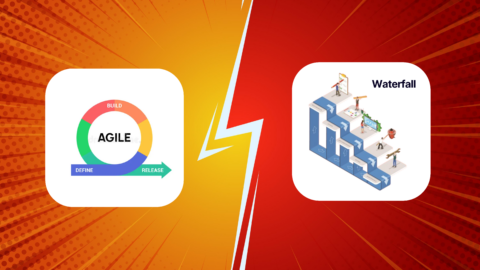One common fact among businesses is the need to manage their operations effectively. Whether it’s finances, inventory, or supply chain, companies require a reliable tool to keep things running smoothly. Traditional ERPs have been the go-to solution for decades, but they can be costly, inflexible, and challenging to implement. Fortunately, there is a newer alternative that businesses can consider – Odoo. With its modular design, open-source nature, and customizable features, Odoo offers a modern solution to the challenges faced by traditional ERPs.
Traditional ERPs
Traditional ERPs are software systems designed to manage various business operations, including finance, human resources, inventory, and supply chain. These systems have been around for several decades and have evolved into complex software solutions that integrate different aspects of a business. They typically come with various features and modules that companies can purchase and customize to suit their needs.
Despite their popularity, traditional ERPs have several issues. They can be costly, take a long time to implement, and require extensive customization to work correctly. Additionally, they often require significant technical expertise to operate effectively, which can be challenging for smaller businesses.
Odoo as an Alternative to Traditional ERPs
Odoo is a newer alternative to traditional ERPs that aims to address some of the issues with these systems. Odoo was first released in 2005 and has become a popular choice for businesses looking for a more cost-effective, flexible, and customizable ERP solution.
One of the main advantages of Odoo is its modular design. The software is broken down into different modules, allowing businesses to purchase only the modules they need and customize them to suit their specific requirements. Additionally, Odoo is an open-source software solution, meaning companies can modify the software’s source code to add or remove features as needed.
Odoo also offers several features that make it a viable alternative to traditional ERPs. These features include customer relationship management (CRM), sales management, inventory management, project management, and accounting. Additionally, Odoo provides a user-friendly interface that is easy to navigate, making it accessible to businesses of all sizes and technical abilities.
Advantages of Odoo
Cost-effectiveness:
One of the primary advantages of Odoo is its affordability. Compared to traditional ERPs, Odoo is significantly more cost-effective, with many modules available for free or at a lower cost. It makes Odoo more accessible to smaller businesses with limited budgets.
Flexibility and Customization:
Odoo’s modular design allows businesses to purchase only the necessary modules and customize them to suit their specific requirements. As an open-source software solution, businesses can modify the software’s source code to add or remove features as needed. This makes Odoo highly flexible and customizable.
Ease of use:
Odoo’s user-friendly interface is designed to be easy to navigate, making it accessible to businesses of all sizes and technical abilities. This can save time and resources, as businesses can use the software effectively without investing in extensive training.
Comprehensive features:
Odoo offers a wide range of features, including customer relationship management (CRM), sales management, inventory management, project management, and accounting. This allows businesses to manage multiple aspects of their operations using a single software solution.
Scalability:
As businesses grow, their needs change, requiring software that can grow with them. Odoo’s modular design and customizable features make it scalable, allowing companies to add more modules and components as needed.
Potential Drawbacks of Odoo
While Odoo has many advantages, it has potential drawbacks. One of the primary drawbacks is the need for technical expertise to install and customize the software effectively. Businesses without technical expertise may find it challenging to install and customize the software to meet their needs. Additionally, while Odoo has a large and active community, support resources may be limited compared to traditional ERPs. It could be a challenge for businesses that require extensive technical support.
Final Thoughts
Odoo is a viable alternative to traditional ERPs for businesses seeking a more cost-effective, flexible, and customizable solution. While it may only be suitable for some industries, it offers several advantages over traditional ERPs, including its modular design, cost-effectiveness, and ease of use. Businesses considering implementing an ERP should consider Odoo as a potential solution and weigh its advantages and potential drawbacks to determine whether it is the right fit for their specific needs and requirements.










